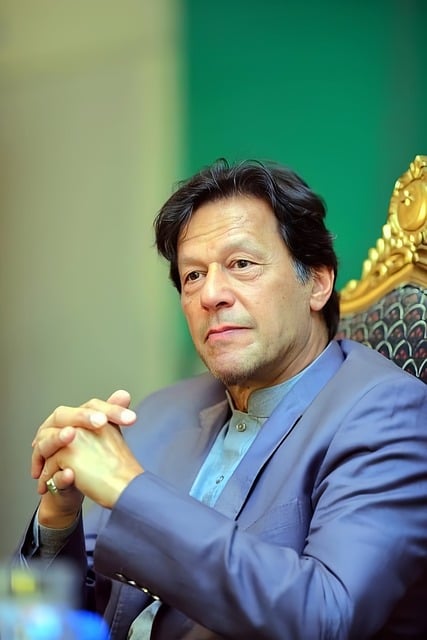Early Life and Cricket Career
Childhood and Education
Imran Ahmed Khan Niazi was born on October 5, 1952, in Lahore, Pakistan. Raised in a well-off family, Khan had the privilege of receiving an education from Aitchison College in Lahore and later at the Royal Grammar School Worcester in England. He went on to Keble College, Oxford, where he studied Philosophy, Politics, and Economics.
Cricket Beginnings
Khan’s cricket career began early, making his first-class debut at the age of 16. His international career started in 1971 during a Test series against England. Known for his fast bowling and skillful batting, he soon became a key player for the Pakistan national cricket team.
Captaincy and World Cup Victory
Khan was appointed captain of the national team in 1982. Under his leadership, Pakistan saw significant successes, including their historic victory in the 1992 Cricket World Cup. This win was Pakistan’s only World Cup triumph, and it cemented Khan’s status as one of the greatest all-rounders in cricket history.
Post-Cricket Recognition
After retiring from cricket, Khan was inducted into the ICC Cricket Hall of Fame, recognizing his contributions and achievements in the sport.
Political Career
Founding of PTI
In 1996, Khan founded the political party Pakistan Tehreek-e-Insaf (PTI), aiming to create a corruption-free and just society in Pakistan. The early years were challenging, but Khan remained committed to his vision.
Early Political Struggles
Khan won a seat in the National Assembly in the 2002 general elections, representing Mianwali. However, his party boycotted the 2008 elections, protesting against the then-ruling party’s policies.
Rise to Prominence
PTI emerged as a significant political force in the 2013 general elections, becoming the second-largest party by popular vote. In the 2018 elections, PTI won the most seats in the National Assembly, leading to Khan becoming the 22nd Prime Minister of Pakistan.
Premiership (2018-2022)
Economic Policies
As Prime Minister, Khan faced an immediate balance of payments crisis. His administration secured bailouts from the International Monetary Fund (IMF) and other countries to stabilize the economy. Measures were taken to reduce the current account deficit and limit defense spending.
Social Welfare Initiatives
Khan’s government launched several initiatives aimed at improving the welfare of Pakistani citizens. These included the Ehsaas Programme, aimed at reducing poverty, and the Plant for Pakistan initiative, which focused on environmental sustainability.
COVID-19 Response
The COVID-19 pandemic posed significant challenges for Khan’s government. Despite efforts to manage the crisis, the pandemic led to economic difficulties and rising inflation, impacting Khan’s political standing.
Controversies and Legal Issues
Lettergate and No-Confidence Motion
In early 2022, Khan claimed that the United States was behind efforts to remove him from office, a situation that came to be known as “Lettergate.” This led to a constitutional crisis, culminating in Khan becoming the first Pakistani Prime Minister to be ousted through a no-confidence motion in April 2022.
Legal Battles and Charges
Post-premiership, Khan faced multiple legal challenges. In August 2022, he was charged under anti-terror laws for accusations against the police and judiciary. By October, he was disqualified from holding office due to the Toshakhana reference case.
Assassination Attempt
In November 2022, Khan survived an assassination attempt during a political rally in Wazirabad, Punjab, which further heightened the political tension in the country.
Arrests and Convictions
Corruption Charges
On May 9, 2023, Khan was arrested on corruption charges, leading to widespread protests and the arrest of many of his supporters. He was sentenced to a three-year jail term in August 2023 for misusing his position to sell state gifts.
Diplomatic Cypher Case
In connection with the Lettergate incident, Khan faced charges of leaking state secrets. In January 2024, he was sentenced to ten years in prison under the Official Secrets Act.
Marriage Law Conviction
In February 2024, Khan and his wife were convicted of breaching Islamic marriage laws, resulting in an additional seven-year prison sentence. However, these convictions were overturned on appeal by mid-2024.


